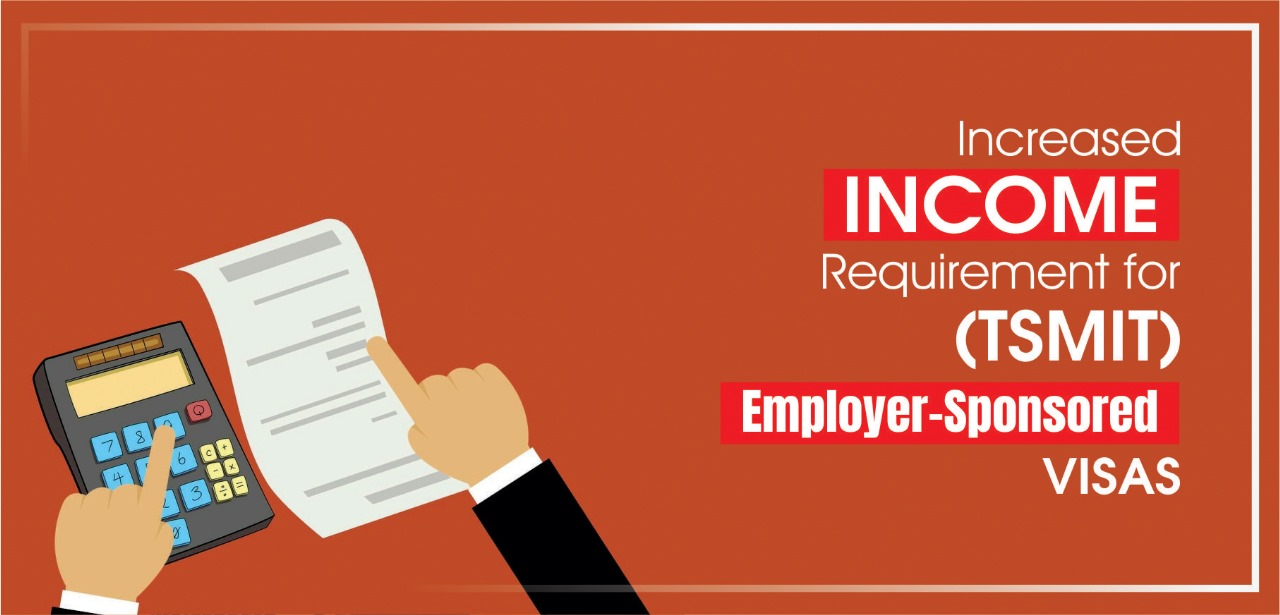The Department of Home Affairs has recently announced an upcoming increase to the Temporary Skilled Migration Income Threshold (TSMIT), set to take effect from 1 July 2024. This adjustment carries significant implications for both overseas workers and their sponsoring employers. To fully grasp the impact of this change, it’s essential to first understand what the TSMIT entails.
The Temporary Skilled Migration Income Threshold (TSMIT) serves as the minimum salary requirement for employers seeking to sponsor foreign workers under various temporary Employer Sponsored visas. These visas include the Temporary Skills Shortage (Subclass 482), Skilled Employer Sponsored Regional (Subclass 494), and Employer Nomination Scheme (Subclass 186) visas. The primary objective of the TSMIT is to safeguard the interests of Australian workers by ensuring that sponsored foreign employees receive a sufficient income to support themselves, while also preventing the undercutting of wages for local workers.
The TSMIT is calculated based on the guaranteed annual earnings of the sponsored worker and excludes components like superannuation, discretionary bonuses, and commissions unless they are guaranteed. Additionally, employers must demonstrate that the proposed salary meets or exceeds the prevailing market rate for the specific position.
As of 1 July 2023, the TSMIT was set at $70,000, representing a notable increase from its previous figure of $53,900, which had remained unchanged since 2013. This year, the TSMIT is slated to rise further, reaching $73,150 from 1 July 2024 onwards. Any new nomination applications submitted after this date must adhere to this revised threshold, or alternatively, meet the annual market salary rate for the position, whichever amount is higher.
This impending adjustment necessitates proactive measures from employers intending to sponsor overseas workers within the salary range affected by the increase. For those impacted, it may be crucial to initiate nomination applications prior to the deadline to avoid potential delays associated with additional requirements, such as job advertising obligations.
It is important to note that existing visa holders and nominations lodged before 1 July 2024, as well as nominations proposing salaries above $73,150, will not be affected by this change. However, for those likely to be impacted by the updated TSMIT, seeking advice from a registered Migration Agent is strongly advised to explore available options and ensure compliance with the new regulations.
In conclusion, while the TSMIT increase aims to uphold wage standards and protect local job opportunities, it underscores the need for affected parties to stay informed and take timely action to navigate these regulatory adjustments effectively.








